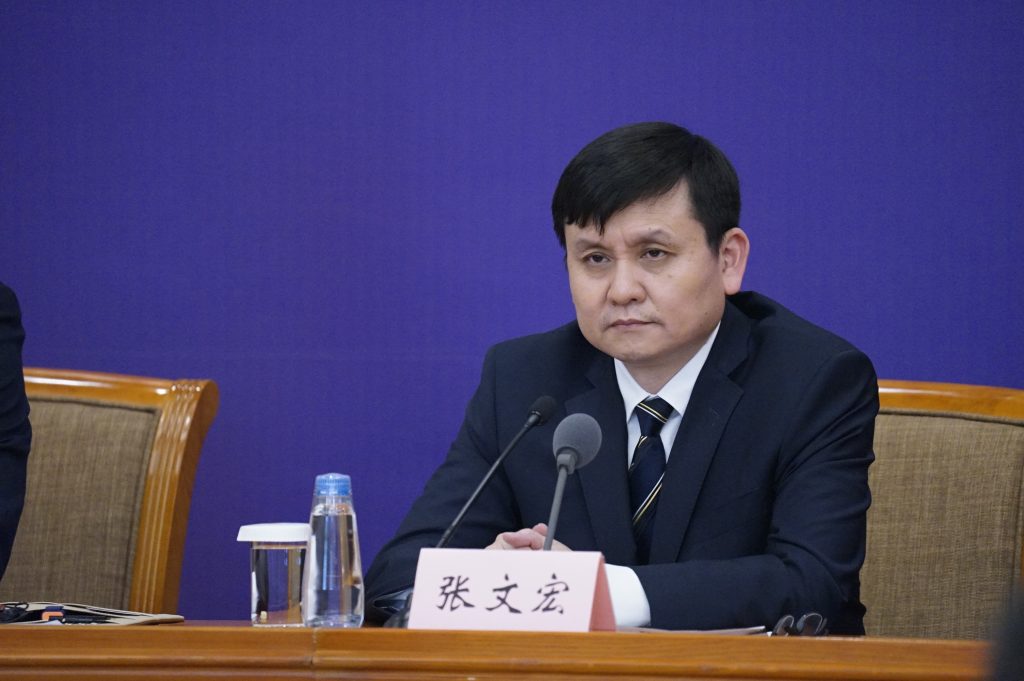China expert: The global COVID-19 epidemic will not end in 1-2 years
China expert: The global COVID-19 epidemic will not end in 1-2 years
China expert: The global COVID-19 epidemic will not end in 1-2 years. Chinese Top COVID-19 Expert: Zhang Wenhong, early morning posted: The global epidemic will not end in 1-2 years and future epidemic prevention strategies.

Zhang Wenhong said that various information revealed future epidemic prevention strategies and global exchange scenarios.
On December 7, Shanghai announced the traceability results of the 6 local confirmed cases reported between November 20 and 23. The medium-risk areas have all been opened after two weeks of closure.
The still closed world has gradually become numb to all kinds of news, and the prospects for epidemic prevention also seem to be calm. However, several events have revealed possible scenarios for global exchanges next year.
The Shanghai International Import Expo and the Japanese Olympic Games have similarities in their epidemic prevention strategies. First, on November 10, the Shanghai International Import Expo was successfully closed under closed-loop management. Inbound people implemented closed-loop management and left the country after the meeting. All visitors will be tested for nucleic acid and no other restrictions will be imposed. A total of more than 1.3 million people participated in the CIIE. Its successful development can be regarded as an exploration of large-scale international interactive activities, although the scale is small.
Last week, I had an exchange with important national-level epidemic prevention experts in Japan. Two pieces of information are worthy of attention. One is that Japan will hold the Olympic Games as scheduled, and the other is that Japan has already ordered the full-year vaccine for next year. However, opinion polls suggest that only 15% of people have a strong desire to vaccinate, about 60% are hesitant, and the remaining 25% have clearly stated that they will not be vaccinated. And how will the Olympics be held in this situation? This can’t help but be thought-provoking.
The epidemic prevention measures announced by the Japanese Olympic Committee have many similarities with those of the Shanghai International Import Expo. It can be seen that these measures may be a reference template for the world to initiate exchanges in the future.
For athletes from countries and regions where the epidemic is more severe, they must be tested for the COVID-19 virus when they arrive at the Japanese airport. Before the test results are available, athletes can only stay in the specified area and implement closed-loop management.
In contrast to the anti-epidemic strategy of the Japanese Olympics, the Japanese Olympics intends to carry out nucleic acid testing for overseas entry to watch the competition. After entry, there will be no movement restrictions and no entry quarantine, but the post-entry trajectory APP needs to be installed. Once a case occurs, precise prevention and control are required. Strategies to track all close contacts and take corresponding epidemic prevention measures. This is similar to the prevention and control strategies of the Shanghai International Import Expo and this local epidemic.
Precise prevention and control will gradually become a common option globally
Recently, several medium-risk areas in Shanghai, China have been unblocked. The key to epidemic prevention in Shanghai this time mainly relies on accurate tracking and full-employment inspections in some medium-risk areas. This also provides an option for super-large cities to reduce the potential for huge impacts on economic activities through precise prevention and control.
With the popularization of vaccines, the world will gradually open up. However, due to the difficulty of universal vaccination (regardless of the existing survey results of individual vaccination intentions or the reality that global production is difficult to achieve in one step), the global epidemic will not end in 1-2 years. However, in the context of the reopening of the world and the normalization of epidemic prevention, precision epidemic prevention may gradually become a global common option in the future.
Scenarios and strategies for China in the future
In the context of the gradual opening up of the world and the gradual popularization of vaccines, China’s medical system must respond well. After the high-risk population is vaccinated, the risk of COVID-19s will gradually decrease in the future, and it may gradually evolve into a seasonal respiratory infectious disease close to influenza, but its harm is greater than influenza.
In this regard, major hospitals must have a normalized epidemic prevention and response department, that is, the infectious disease department. In response to this, the Shanghai health system held a meeting at the Shanghai First People’s Hospital over the weekend. Some hospital directors from the Yangtze River Delta and the Pearl River Delta participated in a lively discussion and fully discussed the future COVID-19 prevention and control strategies .
China is ready to deal with the virus and embrace an open future。
Disclaimer of medicaltrend.org



